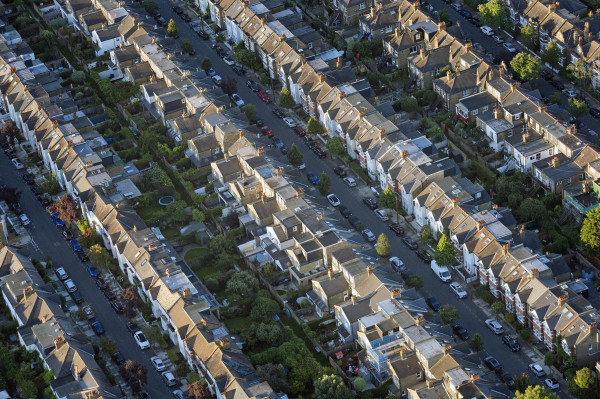

Mortgage borrowing reached £7bn in March, up from £4.6bn in February. This is the highest monthly level since the final month of stamp duty relief last September, when borrowing hit £9.3bn.
But some experts were concerned rising rates and the Bank of England's “overwhelmingly likely” base rate rise tomorrow (May 5) will have an immediate impact on a mortgage market which is already showing signs of slowing.
Approvals for house purchases were “little changed”, falling to 70,700 in March from 71,000 the previous month, according to the Bank of England’s latest money and credit report.
Meanwhile, approvals for remortgaging - which only captures remortgaging with a different lender - rose slightly to 48,800 in March.
Nitesh Patel, a strategic economist at Yorkshire Building Society, said a “more accurate measure” of market conditions and activity was the volume of mortgage approvals.
“This figure reached 70,691 in March and, whilst marginally down on February, it is still well above the pre-pandemic average of 65,700,” said Patel.
The warnings of a slowing market came amid statements from prime minister Boris Johnson, who said this week an inflationary spiral would risk hitting people with higher mortgage payments, and chancellor Rishi Sunak, who suggested last week that some mortgage payments could rise by £1,000 a year.
Knight Frank Finance’s managing partner, Simon Gammon, said: “Demand on the purchase side remains strong but we are just beginning to see some subtle signs of slowing. Rising mortgage rates and uncertainty over the economic outlook is clearly taking a toll on sentiment and we expect mortgage approvals to fall in the months ahead before settling at longer term norms.”
Another hike in the base rate, which currently sits at 0.75 per cent, was "overwhelmingly likely”, said Gammon. Predictions point to a 0.25 basis point raise to 1 per cent.
“If the Bank of England indicates that it’s likely to take a more aggressive approach to combat inflation we’d expect to see an immediate impact in the mortgage market,” he explained.
“Lenders are already repricing products on a weekly basis so borrowers have got to move quickly if they want to secure a good rate – this isn’t something you can put off until tomorrow.”
Affordability concerns ‘key challenge’
Some industry members have raised their concerns over affordability. Bluestone Mortgages’s chief executive, Steve Seal, said: “While it’s reassuring to see that mortgage lending to individuals has increased given current inflationary pressures, affordability concerns are, and will continue to be, a key challenge for consumers.”
He argued a growing number of customers were “feeling a squeeze” on the cost of living due to increased utility and fuel costs, as well as a hike to national insurance contributions.
“We expect to see a growing cohort of customers locked out of the mainstream mortgage market.”
The lender’s own research in December of 1,003 UK adults who were either self-employed, had a blip in their credit score or no credit score, found nearly a quarter (23 per cent) had been turned down for a mortgage.
Consumers borrowed an additional £1.3bn in credit, on net, in March, of which £0.8bn was new lending.
Chartered financial planner at Quilter, Rosie Hooper, highlighted a "stark difference" in consumer behaviour over the past year.
She said: "In Q1 2021, £3.6bn of credit card debt was repaid, while in Q1 2022, £2.1bn was loaded onto credit cards as debt."
Fintech lender and mortgage adviser Habito’s chief financial officer, Martijn van der Heijden, said “all signs” were pointing to another rate rise tomorrow.
“UK inflation was at 7 per cent in March - the highest level since 1992, but this was before April’s 54 per cent hike in Ofgem’s energy price cap is included in calculations,” she explained.
“Inflation is likely to be higher now, and this will put yet more pressure on the Bank of England to act again.”
The average standard variable rate (SVR) mortgage ticked up by 0.10 per cent to 4.71 per cent in April, to reach a two-year high, according to Moneyfacts.
For the majority (74 per cent) of borrowers on a fixed rate deal, a base rate rise will not lead to an immediate financial hit.
That said, Heijden reckons if the Bank did need to raise rates again - and financial markets believe this could happen over the summer - when clients on fixed rates do come to remortgage, they could see mortgage prices higher than where they are now.
ruby.hinchliffe@ft.com



